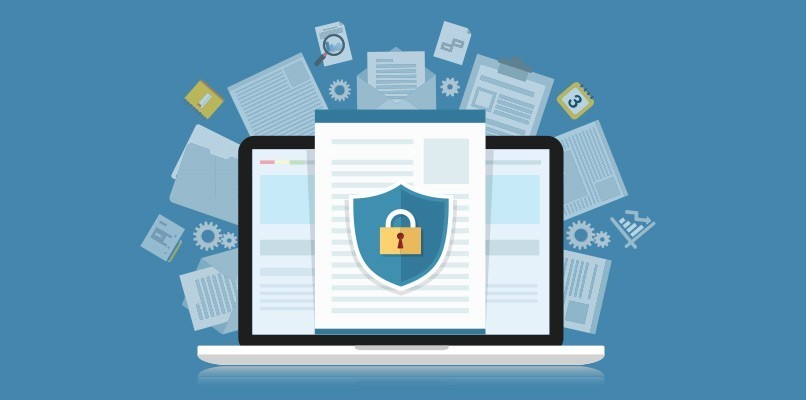Nearly every company in the world today has a presence online. Businesses can function 24-hours a day, throughout the year. There are no time constraints or geographic limitations. Unfortunately, it is also crammed with appalling security hazards. Cybercriminals are a threat to your finances, bank accounts, personal information, and ultimately one’s reputation as a business person. Website security is, therefore, a critical component of running a successful business online.
A survey by Hubspot, a leading American software developer for sales and customer services, has established through a survey that more than 80% of customers would exit a website that was not secure. Here are two more startling facts.
Almost half the cyberattacks target websites of small businesses
Online business owners can never assume that their businesses are too small for anyone to be bothered. It is the small ventures that are most vulnerable to phishing, malicious code, and botnets. In the USA, for example, small businesses have spent an average of 7.7 million dollars to recover from vicious cyberattacks.
Dwell time is more than 75 days
Dwell time is the period between a cybercriminal accessing a system and being detected. Within this time, there would have been several data breaches setting up for more serious threats in the future. Companies that were targeted get hit again within a year, according to cybersecurity company FireEye.
Here are a few examples of the type of damage done by a cyberattack:
- Distributed Denial of Service attacks can lead to acute downtime of the website
- Redirecting traffic to other websites
- Displays of 404 errors (Page not found)
- Sending harmful computer code to visitors and customers.
Without doubt, website security is extremely important to keep your business secure. Now let’s talk about why website security is important for SEO ranking and why you need to opt for a reliable SEO packages.
1 Blacklisting by Google
A website that is not properly secured puts all the work done creating excellent content at high risk. Malware and spam escalate the chances of hacking and impact website SEO bringing down its organic ranking. Google, for many years, has been working to make the internet safer and requires websites that people access through its search engines to be secure. Cybercriminals who hack websites and post false or unlawful links on a website can cause extreme damage, with Google blacklisting the website and penalizing the owner. Cleaning up malware from the website is a time-consuming and expensive job. Even after doing that to get the ranking back is not easy. The site will have to be taken off from every blacklist, and the owner has to get the search engine to re-index the entire website. Both Firefox and Google Chrome mark HTTP connections negatively and advocate “HTTPS everywhere.” HTTPS indicates that the website uses SSL/TSL technology, a protocol that authenticates and encrypts data on the website’s connections to the browser. Using HTTPS is a signal to Google’s search engines to rate the website higher. For further information please visit: web scraping project
2 Malicious Spider Bots
Spider bots or web crawling bots are software programs that do repetitive tasks on the internet. Search Engine bots traverse the massive network of links within the internet; they then do a process called crawling, where they analyze and index the web content pages. They deliver the most relevant pages when a search is performed. When they work well, Spider bots are critical in getting a good organic ranking. However, around 20% of the bots crawling the internet have malicious intent. They facilitate the misuse of websites and mobile apps. They allow cybercriminals to indulge in activities like web scraping (stealing contents from websites), price scraping (theft of pricing data), brute-force login (hacking passwords by trial and error), spamming, fraudulent transactions, and more. When the contents of a website are stolen and posted to a low-quality page, it can drastically bring down the site’s rankings, which in turn results in decreased visitors and income. When information about pricing for products or services is stolen, competitors can use it to price their products lower. This manipulation can affect search engine results that rank products displayed from lower-to-higher prices, making the original website lower in the rankings.
3 SEO spam injection
Hackers use SEO spam injection to infiltrate high-ranking websites, gain administrative rights and discretely add spam keywords. Visitors who browse for those keywords will find the website in their search results. The website will suffer because of higher numbers of visitors looking for a product or service that is not offered. SEO spammers can also attack ads displayed on your website and replace them with links that redirect traffic to spammed destinations.
Spammers can take more injurious steps and insert links into the website, hidden under genuine links that can send users to websites that sell illegal and banned substances. The reputation of your website and the SEO ranking can be seriously affected by such abuse.
After all that disturbing information about how websites and businesses can be damaged, is there anything that business owners can do? Yes, fortunately. In the case of cyber-security, prevention is much better than cure. The sooner the menace is tackled, the better for a website owner.
Plugins for WordPress sites
WordPress is the most effortless content management system available that powers almost half of all websites. It is the most prevalent way of creating a website or a blog. WordPress plugins are software codes that can be added onto a website created using WordPress to add new features. Security plugins are easily available and can enhance the security functions of websites. They block malware attacks, detect spam, and block bad bots. Some plugins can additionally remove malware quickly and come with smart firewalls that monitor the traffic on websites.
Website updation
Content management systems are no doubt very convenient. But they are also vulnerable since many of them are open-source software programs; hackers can get into them as easily as website programmers can. To prevent hacker attacks, all plugins and apps should be updated regularly to keep the website up-to-date with the latest security features available.
If you have an important presence online, you should not neglect website security. Security = Trust: difficult to gain, easy to lose.








